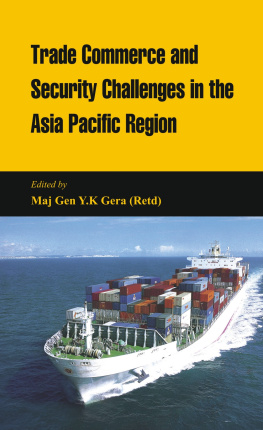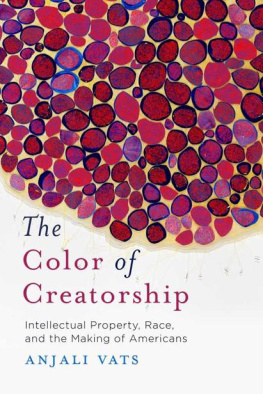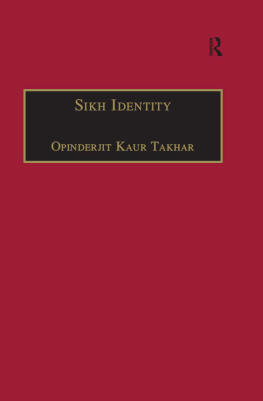Anjali Gera Roy has produced an in-depth scholarly case study of complex interconnections between Sikh migrations and British Imperial policies during nineteenth and early twentieth centuries the regulatory and exclusionary mechanisms, contending claims and political resistance. It is a significant contribution to interrogation of issues related to international migrations in the age of globalisation and resurgent xenophobia.
Harish K. Puri , Professor and Head Dr. B R Ambedkar Chair (Retired), Guru Nanak Dev University, Amritsar
Imperialism and Sikh Migration
Punjab, a region divided between India and Pakistan, has witnessed multiple nomadic, mendicant, trading and pastoral mobilities for centuries. Imperial assisted mobilities in the nineteenth century produced a category of hypermobile Sikhs, who left their villages in Punjab to seek their fortunes in Southeast Asia, Africa, Australia, America and Canada. The practices of the British, British Indian and the Canadian governments to obstruct free flows of Sikhs offer telling instances of the exercise of governmentality through which both old imperialism and the new Empire assert their sovereignty.
This book focuses on the Komagata Maru episode of 1914: this Japanese ship was chartered by Gurdit Singh, a prosperous Sikh businessman from Malaya. It carried 376 passengers from Punjab and was not permitted to land in Vancouver on grounds of a stipulation about a continuous journey from the port of departure. It was forced to return to Kolkata, where the passengers were fired at, imprisoned or kept under surveillance. The author isolates juridical procedures, tactics and apparatuses of security through which the British Empire exercised power on imperial subjects to investigate the significance of this incident to colonial and postcolonial migration. Juxtaposing public archives including newspapers, official documents and reports with private archives and interviews of descendants, the book analyses the legalities and machineries of surveillance that regulate the movements of people in the old and new Empire.
Addressing contemporary discourse on neoimperialism and resistance, nation, migration, diaspora, multiculturalism and citizenship, this book will be of interest to scholars in the field of diaspora studies, postcolonialism, minority studies, migration and mobility studies, multiculturalism and Sikh/Punjab and South Asian studies.
Anjali Gera Roy is Professor in the Department of Humanities and Social Sciences at the Indian Institute of Technology, Kharagpur, India.
Routledge Studies in South Asian History
For a full list of titles in this series, please visit www.routledge.com
4 Cinema, Transnationalism, and Colonial India
Entertaining the Raj
Babli Sinha
5 Environment and Pollution in Colonial India
Sewerage Technologies along the Sacred Ganges
Janine Wilhelm
6 The Kashmir Conflict
From Empire to the Cold War, 194566
Rakesh Ankit
7 Hindu Nationalism, History and Identity in India
Narrating a Hindu Past under the BJP
Lars Tore Flten
8 The Formation of the Colonial State in India
Scribes, Paper and Taxes, 17601860
Hayden J. Bellenoit
9 Health and Medicine in the Indian Princely States
18501950
Waltraud Ernst, Biswamoy Pati and T.V. Sekher
10 Class Conflict and Modernization in India
The Raj and the Calcutta Waterfront (18601910)
Aniruddha Bose
11 Imperialism and Sikh Migration
The Komagata Maru Incident
Anjali Gera Roy
First published 2018
by Routledge
2 Park Square, Milton Park, Abingdon, Oxon, OX14 4RN
and by Routledge
711 Third Avenue, New York, NY 10017
Routledge is an imprint of the Taylor & Francis Group, an informa business
2018 Anjali Gera Roy
The right of Anjali Gera Roy to be identified as author of this work has been asserted by her in accordance with sections 77 and 78 of the Copyright, Designs and Patents Act 1988.
All rights reserved. No part of this book may be reprinted or reproduced or utilised in any form or by any electronic, mechanical, or other means, now known or hereafter invented, including photocopying and recording, or in any information storage or retrieval system, without permission in writing from the publishers.
Trademark notice: Product or corporate names may be trademarks or registered trademarks, and are used only for identification and explanation without intent to infringe.
British Library Cataloguing-in-Publication Data
A catalogue record for this book is available from the British Library
Library of Congress Cataloging-in-Publication Data
A catalog record has been requested for this book
ISBN: 978-1-138-63251-6 (hbk)
ISBN: 978-1-315-20821-3 (ebk)
Typeset in Times New Roman
by Apex CoVantage, LLC
Like most Indians, I had no idea about the journey of the ill-fated ship that was a watershed in South Asian migration to Canada until I watched Ali Kazimis award-winning documentary Continuous Journey , coincidentally on the eve of my first visit to Canada. Thank you, Ali Kazimi, for sharing with the entire IIT community and me the amazing story of the Komagata Maru in person.
I would like to thank Nicola Mooney and Anne Murphy for giving me an opportunity to visit Vancouver and Satwinder Bains for providing me a glimpse into the lives of Sikh pioneers in Surrey. I would also like to thank Michael Hawley, Margaret Walton-Roberts and Cetta Mainwaring for inviting me to present part of this research at the Conferences on Commemorating the Komagata Maru / Celebrating the Century and Governing Migration from the Margins respectively. I thank Doris Jakobsh for her warmth and hospitality in Kitchener and for reading my conference paper in her own inimitable style. Without the support and hospitality of Nandi Bhatia, friend and collaborator, this book could not have been completed.
I would like to acknowledge the generous support of all members of the Budge Budge Komagata Maru Committee, particularly Sr Joginder Singh Johal, Sr Bachan Singh Saral and Mr Ganesh Ghosh who pulled out all stops in arranging visits to the memorial and in facilitating interviews with descendants of both passengers and witnesses.
I cannot find the words to thank Professor Malwinder Singh Waraich and Dr Darshan Singh Tatla for the direction and benchmarks they have set for research on the Komagata Maru. I am equally indebted to eminent historians Professor Jaspal Singh, Professor Indu Banga and Professor Harish Puri for throwing light on the overlap between the Komagata Maru and Ghadr. A big thanks to Punjab friends Tejinder Kaur, Jaspal Kaur, Rita Grewal, Karamjit Malhotra and Gurmukh Singh for enabling repeat visits to Punjab and to Parminder Singh Tiwana for helping me reach out to descendants in real and virtual space.
Generous financial support from the Shastri Indo-Canadian Institute (SICI), Ministry of Culture Government of India and the Indian Council of Social Science Research(ICSSR) helped to access archives in India and abroad. Thanks are due to members of the Komagata Maru Commemoration Committee, Ministry of Culture and to Ms Prachi Kaul in SICI, Ms Nirmala Goyal in Ministry of Culture and Ms Revathy Viswanath in ICSSR.










